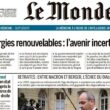The world’s largest magazine publisher Bauer Media has finally managed to escape from its eight-year nightmare in the AsiaPacific. Not by selling the company in which it has invested some A$750m but by virtually giving it away to Australian private equity firm Mercury Capital. The deal (unofficially priced at a mere A$30-40m) includes the New Zealand subsidiary abruptly “closed” by Bauer last month, and is expected to complete within four weeks.
The Hamburg-based Bauer had entered the Australasian media market with a A$525m splash in 2012 when it acquired the former ACP Magazines from CVC. The private equity firm had itself bought the business (as part of PBL Media, owner of the now separate Channel Nine TV) in a disastrous move six years previously.
The CVC fiasco might have been a warning but the German publisher had abandoned its customary cautiousness. The plunge into Australia seemed to mark a phase of euphoric expansion by new boss Yvonne Bauer just a few years after her father had led the £1.14bn acquisition of EMAP’s magazines and radio business in the UK. As she posed for sunny photos alongside the Sydney Opera House, Ms Bauer couldn’t contain her enthusiasm for the country, print media and ACP itself.
Bauer’s interest in the Aussie business had first been prompted by their new UK executives whose former Finance Director had become CEO of ACP Magazines. He didn’t last long but, then, nor did Bauer’s next four CEOs in Sydney. Bauer kept making mistakes, including appointing one part-time CEO expected to divide his time between the UK and Australia.
Ultimately, six chief executives have led Bauer Media Australia since it acquired ACP. During that time, it has closed at least 10 major magazines including Madison, Grazia, Top Gear, Dolly, Cleo, Cosmopolitan, Men’s Style, ZOOWeekly, People, and Picture. Just before completing the sale to Mercury, Bauer made 70 jobs redundant and and suspended print production of magazines including Elle, Harper’s Bazaar, NW, OK!, Men’s Health and Women’s Health.
Despite assurances to the contrary, it is anyone’s guess whether the new owners will want to bring back any or all of these lossmaking brands, least of all in print.
Although Mercury has now acquired the company for a fraction of what it once was prepared to pay, the Covid cutbacks in advertising and copy sales will need funding – as will further anticipated cuts in staffing. It is assumed that investment and/or bolt-on acquisitions will be required to help ramp up digital media.
Bauer’s seemingly desperate exit price scarcely covers the A$40m it was was forced to pay last month for the acquisition of key rival Pacific Magazines. It had agreed to buy Pacific pre-Covid – when it had secretly been negotiating sale of the whole business to Mercury for a rumoured A$150m. Those talks were suspended when they became known during the competition regulator’s review of the Pacific deal. And then the virus struck. It prompted Bauer to try to avoid having to pay the previously agreed A$40m for Pacific Magazines. It couldn’t get out of it.
In 2019, Bauer had EBITDA of some A$25m in Australia and A$10m in New Zealand, with perhaps 60% of revenues derived from copy sales and subscriptions. This reduced dependance on advertising has, to some extent, sheltered the company from worse damage during the Covid outbreak but it may still have been lossmaking during April and May.
The highest-ever EBITDA profit of ACP Magazines was A$265m in 2005-6. That was the performance that induced CVC to outbid KKR – in the very year James Packer inherited the company from his late father. But it all went downhill from there.
A neat irony of this week’s acquisition is that it has been led by Mercury partner Ben Hawter who was part of the CVC private equity team which, in 2006, paid A$5.5bn for PBL Media – perhaps double what it was worth when Kerry Packer died. His family had dominated Australian media for more than 50 years. His son’s timing was exquisite.
Fast forward 15 digitally-disrupted years and, on the face of it, this is an even less promising time to acquire a print-dependant, under-invested magazine company with more people, brands and liabilities than it needs. But Bauer/ ACP is most of the country’s best magazines and there’s not much competition left. The giveaway price for 70%+ of the Australian and New Zealand magazine-media market should help the company to become soundly profitable again.
A relatively small number of the magazines, including The Australian Women’s Weekly, Better Homes & Gardens, Australian House & Garden, Marie Claire, Gourmet Traveller, New Idea, That’s Life, Woman’s Day, and a bestselling series of cookbooks may generate more profit than the whole portfolio of 43 brands. That’s a nice starting point for the private equity owner in its search for a three-year year transformation.
Whatever the vagaries of the 21st century magazine market and the Covid acceleration of digital, the former ACP Magazines is a steal of a deal – and that’s even before the new owners and CEO Brendon Hill get to work on merging/closing some magazines and diversifying revenues. Having a virtual monopoly of major Australian and New Zealand magazines really does create great opportunities to push the brands more strongly into digital, broadcast – and retail.
Mercury’s internal documents have noted just how effectively Meredith in the US has used its Better Homes & Gardens magazine to become a major licensing brand across a large range of bestselling homecare products. Not only does Mercury now publish the Australian edition of Better Homes & Gardens, it also owns what is one of the country’s most trusted brands of all – The Australian Women’s Weekly. Just watch them get to work on that part of the plan.
Of course, one of their great brands is “ACP” itself, so perhaps that will feature again in the “new” company’s name.
The whole story of Bauer’s AsiaPacific expedition will one day educate (and entertain) business school students in Australia. They might not believe it.




